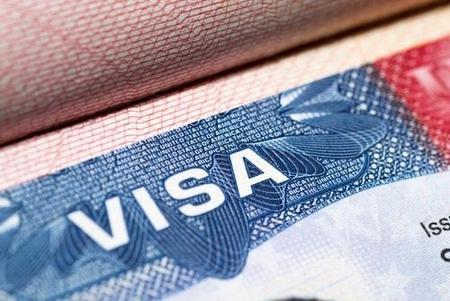What Are the Rules for Obtaining a Fiancé(e) Visa?
 Not all couples who marry are from the same state or even country. Two people who are engaged to be married may live across the globe from each other. This long-distance relationship can be challenging, emotionally and legally. If someone is a U.S. citizen and wants his or her “betrothed” to live in the United States, there are certain stipulations that must be met first before they can move here. Securing a fiancé(e) visa can be a complicated endeavor, but necessary for a loved one to enter the United States legally. In some cases, couples may choose to get married abroad so the foreign spouse would enter the United States on a K-3 (married) visa. Each couple is unique, so it is best to seek legal counsel to determine the best course of action for your immigration situation.
Not all couples who marry are from the same state or even country. Two people who are engaged to be married may live across the globe from each other. This long-distance relationship can be challenging, emotionally and legally. If someone is a U.S. citizen and wants his or her “betrothed” to live in the United States, there are certain stipulations that must be met first before they can move here. Securing a fiancé(e) visa can be a complicated endeavor, but necessary for a loved one to enter the United States legally. In some cases, couples may choose to get married abroad so the foreign spouse would enter the United States on a K-3 (married) visa. Each couple is unique, so it is best to seek legal counsel to determine the best course of action for your immigration situation.
Immigration Visa Laws
The first step in bringing your foreign fiancé(e) to the United States is filing a Petition for Alien Fiancé(e), which is Form I-129F. This will allow him or her to obtain a K-1 nonimmigrant visa, which is also referred to as a fiancé(e) visa.
A couple must be married within three months and the union must be legitimate, meaning both partners have an intent to begin a life together and the marriage is not solely for immigrating to the United States.
Once married, the fiancé(e) can apply for lawful permanent resident (LPR) status in the United States, which grants him or her a Green Card. An individual can bring a fiancé(e) to the United States as long as the following criteria are met:
- You are a U.S. citizen
- You and your fiancé(e) plan to legally marry within 90 days of your fiancé(e)’s entrance to the United States on a K-1 nonimmigrant visa
- You and your fiancé(e) are legally allowed to marry (any prior marriages have been legally terminated by death, divorce, or annulment)
- You and your fiancé(e) were together in person at least one time within two years before you filed your petition
A person may request a waiver of the in-person meeting qualification if he or she can show that meeting face-to-face would violate strict and enduring customs of his or her fiancé(e)’s cultural customs or social circumstances, or result in significant hardship to the petitioner.
In addition, if the fiancé(e) has dependent children who are under 21 years old, they can apply for a K-2 visa to enter the United States with the K-1 visa holder.
Contact an Illinois Immigration Attorney
Having your fiancé(e) join you in the United States can be an exciting time. However, there are rules and regulations for securing the necessary paperwork if he or she is coming from a different country. The knowledgeable Illinois immigration lawyers at Mevorah & Giglio Law Offices have decades of experience handling all types of immigration issues. We can help you navigate the visa process so you can begin your new life with your loved one as soon as possible. Call our office today at 630-932-9100 to schedule a free consultation.
 English,
English,
 Spanish,
Spanish,
 Polish,
Polish,
 Urdu
Urdu













 Make a Payment
Make a Payment



